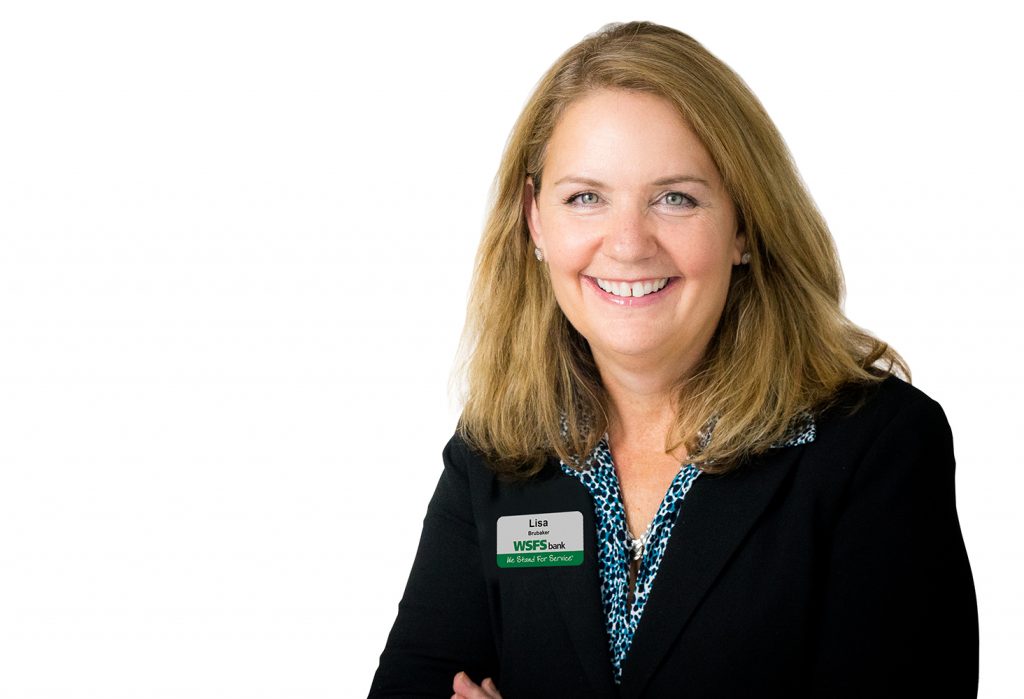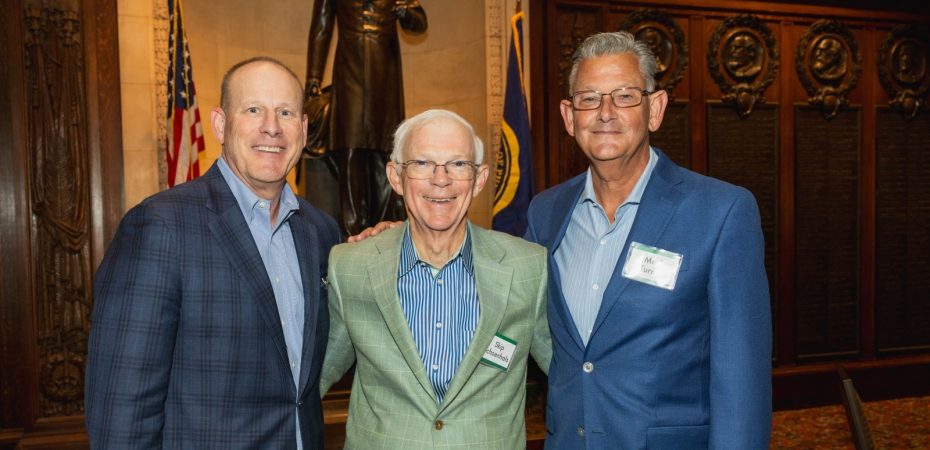Leadership at any level requires the right balance of strategic direction, creating a successful culture and planning for the future. Nowhere is this more evident than in the role of a CEO, where stakes are high, and every decision reverberates across the company. It’s a tightrope walk the last three CEOs at WSFS Financial Corporation know well and have managed successfully.
Each of the company’s leaders came to WSFS with unique opportunities and challenges put before them. For Marvin “Skip” Schoenhals, that came when the bank was on the edge of failure in 1985.
“A situation like that really focuses you,” said Schoenhals. “The goal was to get through to Friday because we could have been out of business. By then, hopefully, that fire was out, and I could go on from there.”
Within a few years, Schoenhals’ vision had saved the bank and steered it back on solid financial ground. His leadership inspired WSFS’ next CEO, Mark Turner, who faced his own set of challenges as he stepped into the role in mid-2007, just as the initial cracks of the financial crisis loomed.
“When I started, I told the board we weren’t going to cut back like everyone else at the time,” said Turner, who led the company until 2019. “Instead, we were going to invest in our future. And it paid off.”
Turner’s long-term foresight positioned WSFS to major growth, building its assets to $20 billion, growing from 16 branches to more than 100, and diversifying its assets, even during challenging times. His growth mindset continued into WSFS’ current CEO Rodger Levenson who now leads 2,300 Associates across 115 locations and has $92.4 billion in assets under management and administration.
Levenson has faced his own adversity as he led the company during the 2020 pandemic and the acquisition of Bryn Mawr Trust in 2022. During that time, WSFS also saw exponential growth in talent with approximately 60% of Associates joining WSFS either through acquisition or hiring
“As leadership, our responsibility is not just to solve problems in the moment but to cultivate talent for the long-term success of the organization,” said Levenson. “The decisions we make today ripple into the future.”
Through each phase of leadership, one thing remains the same at WSFS: a commitment to culture and understanding that it’s not built overnight. With a relentless focus on service, Levenson pays attention to the “little things” to reinforce those values.

The company’s commitment to its “We Stand For Service” ethos weaves through everything from leadership priorities to Associate engagement strategies. Even as WSFS tripled in size, culture became a stabilizing force.
For each CEO, succession planning has been a critical tenent of leadership, and an important understanding of the greater picture.
“The key to sustainable succession isn’t just about preparing one individual; it’s about developing leaders at every level, so the organization is always ready,” said Turner. “A good CEO is the one thinking about the greater good—not their division or personal gain, but what’s best for the company.”
Turner says leaders should surround themselves with strong people that are also company-culture minded. It’s not about having individual perfection, but rather the best team. That thinking shifted his mentality into becoming a leader among leaders.
As future executives contemplate the legacy they want to create, Schoenhals, now fifteen years removed from the c-suite, says knowing yourself is critical.
“When dealing with chaos or crisis, an unshakable identity is everything,” said Schoenhals. “My anchor during those dark days gave me the strength to move forward when failure felt imminent.”
While passing the torch from generation to generation, these CEOs have shown how service-driven leadership can uphold a legacy and sustain organizations for generations. It’s a legacy greater than themselves and one that has kept WSFS around for nearly 200 years serving as the Greater Philadelphia and Delaware region’s oldest and largest locally headquartered bank and wealth management franchise.
WSFS was named as one of the Philadelphia Inquirers Top Workplaces for 2025. If you are interested in joining our service-oriented culture, you can apply at WSFSBank.com/Careers.

Lisa Brubaker is EVP and the Chief Human Resources Officer. Ms. Brubaker leads all
Human Resources functions including Talent Acquisition, Total Rewards, Operations,
Learning & Development, Associate Engagement, and Diversity, Equity & Inclusion.
Ms. Brubaker was most recently EVP and Chief Information Officer (CIO), overseeing
WSFS’ Technology Infrastructure, Application Development and Support, Information
and Cybersecurity, Bank Operations, and Enterprise Project Management and
enhancements to Customer-facing digital solutions.
As CIO, Ms. Brubaker led WSFS’ transformation of how it engages and serves its
Customers and Community. She also guided WSFS through significant system
conversion and integration projects with the combination of WSFS and Bryn Mawr Trust
in 2022 and acquisition and integration of Beneficial Bank in 2019.
Ms. Brubaker joined WSFS in 1987 and has held a variety of leadership roles with
increasing responsibilities throughout her career at WSFS. She has previously served
as EVP and Chief Technology Officer, SVP and Director of Retail Strategy, among other
roles. She also has an extensive background in project management and mergers and
acquisitions.
Ms. Brubaker serves on the Board of the Brandywine Red Clay Alliance, a watershed
conservation organization in Southeastern Pennsylvania and New Castle County,
Delaware, and volunteers for several organizations in the Greater Philadelphia and
Delaware region. She is a graduate of the University of Delaware and a current Aresty
Scholar at the Wharton School’s Aresty Institute of Executive Education where she is
completing a Certificate of Professional Development.
Born and raised in Lancaster County, Pennsylvania, she resides in Bear, Delaware.

 Courtesy of WSFS Bank
Courtesy of WSFS Bank